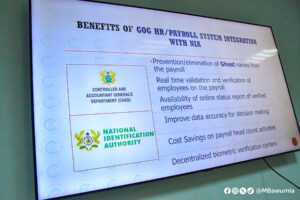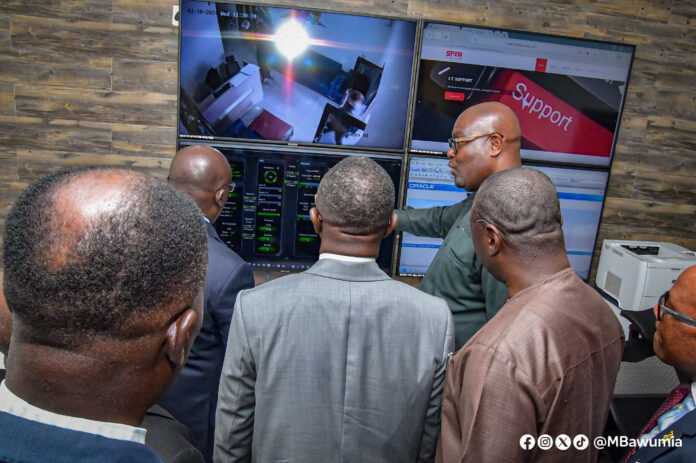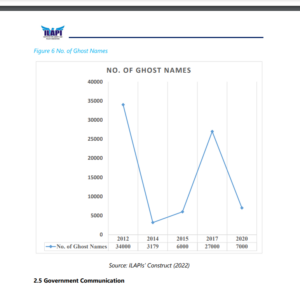Vice President Dr Mahamudu Bawumia has launched a digital solution to eliminate ‘Ghost names’ on the government payroll.
He launched the initiative on Wednesday, January 10.

He explained that the system involves the linkage of the Government of Ghana (GoG) National Mechanised Payroll Database of the Controller and Accountant-General’s Department (CAGD) with the National Identification Authority (NIA) Database, with the real time biometric validation and verification of applicants decentralised to the various CAGD Verification Centres across the country to ensure more accessibility and convenience.

The system, he added, will ensure real time validation and verification of new and old employees, improve data accuracy for decision making, enhance transparency and accountability, save Government the huge costs of regular Payroll Audits across the country since the data can be audited anytime at source, and will operate in decentralized biometric verification centres, saving users the cost of travelling to Accra for validation and verification.
Regarding the issue of ghost names, an earlier report by the Institute for Liberty and Policy Innovation noted that the perennial bloating of government payroll with ghost names was causing taxpayers millions of Ghanaian Cedis.
The report recounted that in 2015 after staff auditing, about 2,913 ghost names were found on the Ghana Education Service Payroll alone.
“Approximately GHS100 million is lost annually to payroll fraud. Consistently since 2011, whenever the International Monetary Fund (IMF) is contracted for a bailout and as part of restructurings, the government would conduct a nationwide employee audit on its payroll,” it said.
Regarding procurement fraud, the report explained what it entails.
It said “any deceptive or corrupt practices involved in the acquisition of goods, services, or works by public or private entities are termed.“
Procurement fraud
Procurement fraud in Ghana is a challenge, and this has been a persistent issue in both the public and private sectors.
“The country has taken several measures to address this problem, including the establishment of anti-corruption agencies and the enactment of legislation to prevent fraud and promote transparency in procurement processes. However, the issue of procurement fraud still exists.
“Some common forms of procurement fraud in Ghana include: Collusion(conspiracy between bidders to manipulate the bidding process by agreeing on prices, dividing contracts, or engaging in other anti-competitive practices) Bid rigging (In bid rigging, individuals or companies agree in advance on who will win a particular contract, often by submitting non-competitive bids or excluding legitimate competitors from the bidding process), Kickbacks and bribery (This form of fraud occurs when individuals or companies offer or accept bribes or kickbacks to influence the procurement process in their favour); Misrepresentation of qualifications or capacity (Fraudulent bidders may provide false information about their qualifications, experience, or resources to secure contracts for which they are not genuinely qualified), Invoice manipulation (This involves inflating the cost of goods, services, or works in the invoice or misrepresenting the quantity or quality of the delivered goods to obtain higher payments.)



